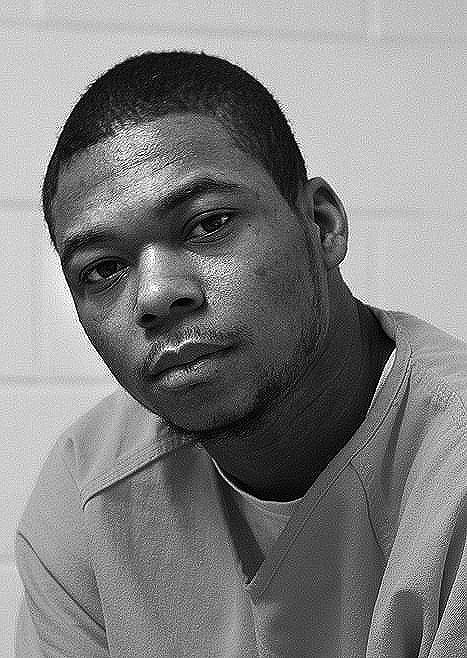Freedom of Expression Through Song—Or Not?
Homecoming 2015: Freedom Issue
Antwain Steward was arrested and charged with double murder
Music is one of the greatest comforts for human beings. Songs can be used as an alternative way to convey feelings, decompress, or merely provide enjoyment. Not only does music allow desired gain or release of emotion, but it can also inspire and call people to action. One unfamiliar use of music, however, is criminal evidence. In the past few years, police have been arresting musicians, and the central source of evidence is their song lyrics.
Rapper Antwain Steward was arrested due the evidential use of two delayed witness statements and his own song lyrics. In 2007, Brian Dean and Christopher Horton were found dead outside Horton’s home in Newport, Virginia. Antwain Steward, commonly known by the stage name Twain Gotti, was an up and coming musician at the time, and his work was considered “gangster rap”. Steward released a song titled “Ride Out”, in which he raps explicitly about violence and murder. The initial murder case was a failure because the local police could not developed a single lead. According to PBS NewsHour, four years later, Carlos Nunez, the case’s new detective, received a tip, dragging Twain Gotti into the case as a suspect. In Steward’s initial interrogation, Nunez zeroed in on the violent lyrics.
University of Richmond scholar of rap Erik Nielson offered insight in this case, suggesting that prosecutors, initially lacking evidence, introduced the rap lyrics to secure their convictions. Nielson also emphasized the need to respect the lyrics as a form of art. He explained, “That is the most important distinction that constantly gets missed, is that there is an author and a narrator. We seem to be able to grasp that concept with every other art form that uses the first person narrative. But rappers, who go the extra mile to signal that they are inventing a narrator with their use of a stage name, we still revert back to this idea that they’re the same, ”. Nielson’s view suggests that not only are rappers creating characters, but they are also using the extreme violence to reflect the communities in which they live. Nielson also insists that there have been hundreds of instances where rap lyrics have been used at some point in a criminal case. The new perspective derived from the violent lyrics encouraged people to view Twain Gotti’s rap as his bragging about the murder. Despite his adamant claims of innocence and ignorance of the double murder, Steward was charged with the murder, as the prosecutors overruled his Freedom of Expression as a conclusion to their murder case. He remains in jail currently, continuing to defend his lyrics.
As we see in Steward’s case, local police officers may perceive violent songs as confessions, or a display of pride in their violent actions. Critics argue that claims ff critical behavior should not be based solely on a musician’s words, especially if the evidence relies on a stereotype, such as the gangster lifestyle found in Steward’s case. Whether or not Steward’s lyrics resemble the details of the double murder case, a claim as serious as murder should include evidence beyond the musician’s song and statements from witnesses who failed to immediately come forward. Defendents in cases such as Steward’s also worry that addressing rap lyrics in court will impose prejudice in the jury. History Teacher, Donald Morton, reflected on the conclusion of the case, rationalizing, “It doesn’t seem fair to me. You don’t go arrest Bob Marley for shooting the sheriff. It’s not ok.” Police continue to draw conclusions or claims from the lyrical expression of musicians. Rappers Vonte Skinner and Antavio Johnson have faced accusations and charges for their lyrical expression as well.
In 2003, the Supreme Court defined rap music as “statements where the speaker means to communicate a serious expression of an intent to commit an act of unlawful violence to a particular individual or group of individuals.” Those opposed to this type of rap music contend that it encourages young people to accept and even embrace extreme violence. This concern is rational, as some lyrics appear to serve as more than fictional expression. Therefore, more clarification is needed in regards to the fine line that separates artistic communication and criminal statements. Mary Agne ‘18 considered the issue, and vehemently delared: “I don’t think the freedom of expression used in rapping should be used as a reason to arrest someone unless there is compelling evidence. For many people, music is a safe place to express themselves and should not be used as evidence by itself.”
Many musicians and artists feel deprived of their freedom of expression. Aware of the limits to the rights of the First Amendment, they are afraid that saying the wrong thing could even earn them jail time. In most cases, these lyrics do not actually hold confessions of crimes; they are an attempt at conveying the ideas and messages of the musician. An inconsistency regarding what ideas musicians are and are not allowed to express in their songs remains. The American Civil Liberties Union supports accused artists such as Steward. Citing the a particular song from country music icon Johnny Cash, the ACLU argued, “That a rap artist wrote lyrics seemingly embracing the world of violence is no more reason to ascribe to him a motive and intent to commit violent acts than to … indict Johnny Cash for having ‘shot a man in Reno just to watch him die,’” .At the end of the day, freedom of expressions remains freedom of expression; no matter how violent the lyrics, made popular by public demand, may be, unless the lyrics pose a direct threat to the common public, they are still protected by the Constitution under Freedom of Expression and should be regarded as such.

































